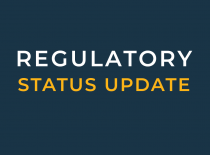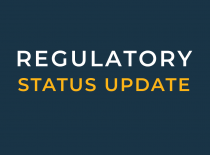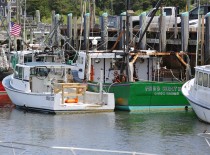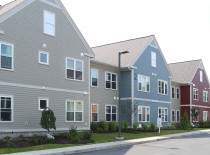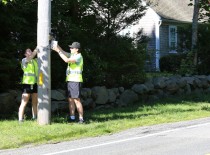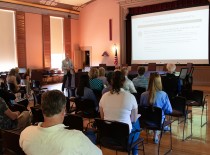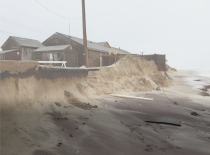Category: Newsletter
This Regulatory Update provides a status on projects currently under review by the Cape Cod Commission. Visit www.capecodcommission.org/regulatory for a full overview of our Regulatory program and answers to frequently asked questions.
A status on projects currently under review by the Cape Cod Commission.
Whether you're looking for one of the best spots to catch a sunset on Cape Cod, take a chartered fishing boat, grab some local seafood, take a day trip on the water, or spend time on the endless flats of Cape Cod Bay, you can find it all at Rock Harbor in Orleans. Home to a small fleet of local fishing boats, Rock Harbor is a popular spot for locals and visitors arriving by car, foot, or bicycle. Read more to learn how the Commission is working to quantify the economic impact of this iconic location.
Improving safety along Cape Cod’s roadways is a key component of the Cape Cod Commission’s transportation work, and now even more is being done as the Commission is developing a Vision Zero Action Plan for the region.
Funded by a federal Safe Streets for All (SS4A) grant awarded in January 2022, Vision Zero is a vision to eliminate roadway fatalities and serious injuries on the nation’s roadways. In partnership with local, state and federal stakeholders, and assistance from our consultant, the Commission will develop a Vision Zero Action Plan and High Injury Network for Cape Cod.
Diverse housing options are needed to ease the region’s housing crisis, but securing a permit for new multifamily home construction on Cape Cod can be difficult and lengthy. The Commission is working with a consulting team of Flintlock LAB, Union Studio Architecture and Design, and Kronberg Urbanists and Architects to develop plans for a variety of compact and small-scale housing types, such as detached accessory dwelling units or cottages, duplexes, townhouses, triplexes, and small multifamily buildings.
The Cape Cod Commission’s transportation department provides data collection services to all 15 towns in the region. To help with data collection for internal studies and requests from towns, the Cape Cod Commission hires summer traffic technicians to perform a variety of data collection efforts throughout the region.
Read more to learn about this year's summer traffic technicians and the data they've collected.
A status on projects currently under review by the Cape Cod Commission.
Summer on Cape Cod is in full swing, and the Cape Cod Regional Transit Authority is busy working to provide residents and visitors with transit options across the region. In addition to its network of fixed-route buses that serve major roadways across Cape Cod, the Cape Cod Regional Transit Authority is rolling out an enhanced on-demand ride-hail service known as SmartDart, beginning its expanded summer fixed route schedules, and welcoming the CapeFlyer summer train for its 11th season.
The Cape Cod Freshwater Initiative is moving forward, with much being accomplished over the past few months. Stakeholder groups, organized by groundwater lens, met three times over the past three months to learn about and share thoughts on the region’s freshwater resources, discuss pond management strategies and priorities, and share ideas for advancing and implementing actions to support pond health. Stakeholder feedback will inform recommendations and resources that result from the Freshwater Initiative. The final round of stakeholder meetings took place in early June, with groups meeting in Sandwich, Harwich, and Wellfleet.
This spring, Cape Cod Commission staff completed the Low-Lying Roads project, identifying priority low-lying roadway segments susceptible to coastal storm flooding and preparing conceptual improvements for prioritized locations in all 15 Cape Cod towns.
